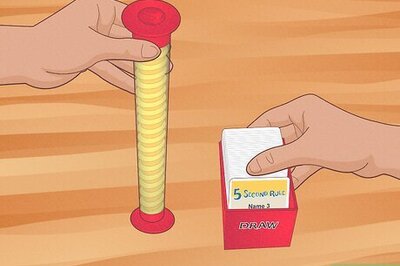
views
Researchers have found that chronic depression is linked with increased health problems for moms and children in poor rural communities.
The findings, published in the Journal of Family Social Work, revealed that mothers who were constantly depressed experienced more health problems, distrusted doctors and had a worse outlook on their lives, compared with moms whose symptoms improved.
The mothers' depression also affected those closest to them, the study said.
"Mothers are one of the main supports of the family. They're raising children, paying bills, and organising events and when they're depressed, the entire family is impacted," said study lead author Yoshie Sano, Associate Professor at Washington State University in the US.
According to the researchers, more than one in five adults deal with depression, a mood disorder that causes persistent sadness, exhaustion and loss of interest, affecting relationships, work, and emotional and physical health.
Women are twice as likely to have depression as men, and people in poverty are three times more likely to experience it, they said.
Using data from the ongoing, multi-state Rural Families Speak project, the research team examined the experiences of 23 mothers with clinical depression across three years.
As part of Sano's research into family relationships through Rural Families Speak, she kept encountering mothers from rural, low-income families who were dealing with depression.
While much prior research has found how depression affects childhood development, she sought to understand the broader context of maternal depression.
Both groups of moms, those who were depressed, but improving as well as those who had chronic depression, had similar struggles in dealing with their children's health.
But chronically depressed moms faced greater challenges in dealing with their children's emotional and behavioural issues, which were often compounded by a lack of childcare options, employment, concerns for delinquent behaviours and day-to-day behavioural management issues.
"We found that children's health -- particularly their emotional and behavioural health -- is one of the most challenging contributors to maternal depression. Depression doesn't happen in isolation. It happens in a family, community, and cultural context," Sano, said.
The study also found that chronically depressed mothers expressed strong distrust of health-care professionals and their prescribed treatments.
Follow News18 Lifestyle for more


















Comments
0 comment